April 22 marks the 300th anniversary of the birth of the philosopher Immanuel Kant. The Little Magician, as he was called in his hometown of Königsberg, which he never left in his lifetime, became the founder of classical German philosophy. In a sense, we still live in the world Kant invented (and so it is not surprising that some people still try to erase him). Kant taught about the limits of reason, and this is especially true of his own books, which are not always easy to understand. From his vast legacy, Qalam has selected some of his most distinctive and sometimes biting maxims — as they say, a bit of moral law for your newsfeed.
ON THE END OF THE WORLD
In the progress of the human race the cultivation of talents, art, and taste (with their consequence, luxury) naturally precedes the development of morality; and this situation is precisely the most burdensome and hazardous for morality, as for physical weal, because needs increase much more vigorously than the means to satisfy them. But the moral predisposition of mankind which (like Horace’s “vengeance comes in limping feet”) always hobbles behind the cultivation of talents will someday overtake it (as one, under a wise world ruler, may well hope), though often stumbling and entangled as it is in its own hasty career. And so considering the empirical proofs for the superiority of morality in our age over all former ages, people themselves perhaps should be able to nourish the hope that the Latest Day might rather make its appearance with an Elijah’s ascension and bring about the end of all things on earth, than with a descent into hell akin to that of Korah’s band. But this heroic faith in virtue seems, after all, not to have so universally vigorous an influence on the conversion of souls as a revelatory scene attended by terrors which is thought of as preceding the last things.
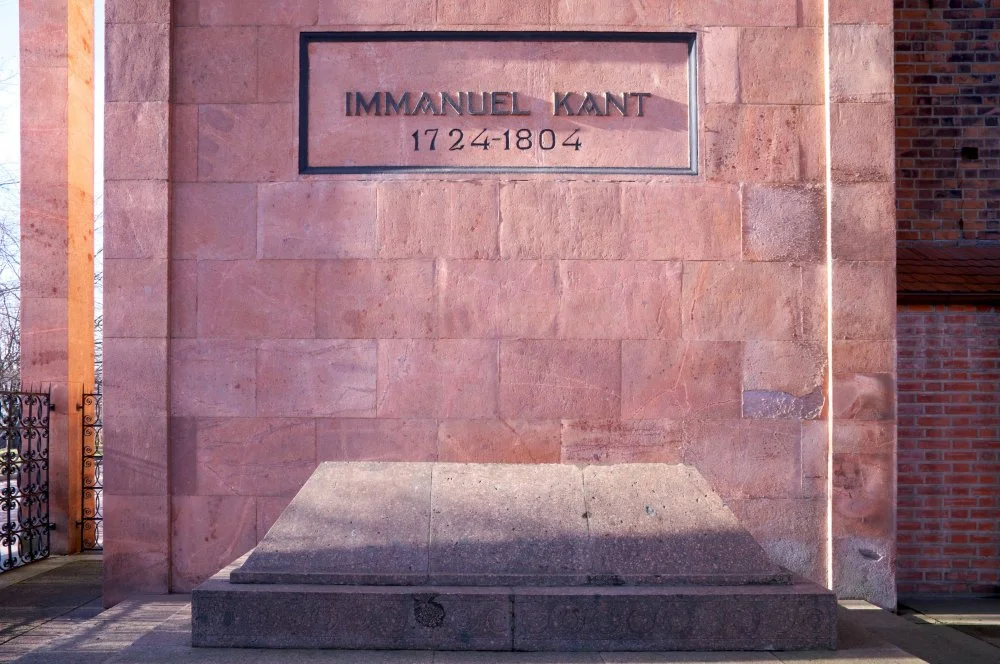
Grave of Immanuel Kant, Kaliningrad, Russia/Alamy
ON WISE MEN ON THE MOON
There are also less turbulent and less widespread inclinations, which at the same time necessarily lead to recklessness, such as the passion for building, collecting paintings, bibliomania. A man with corrupted tastes loses his nature and loves everything.
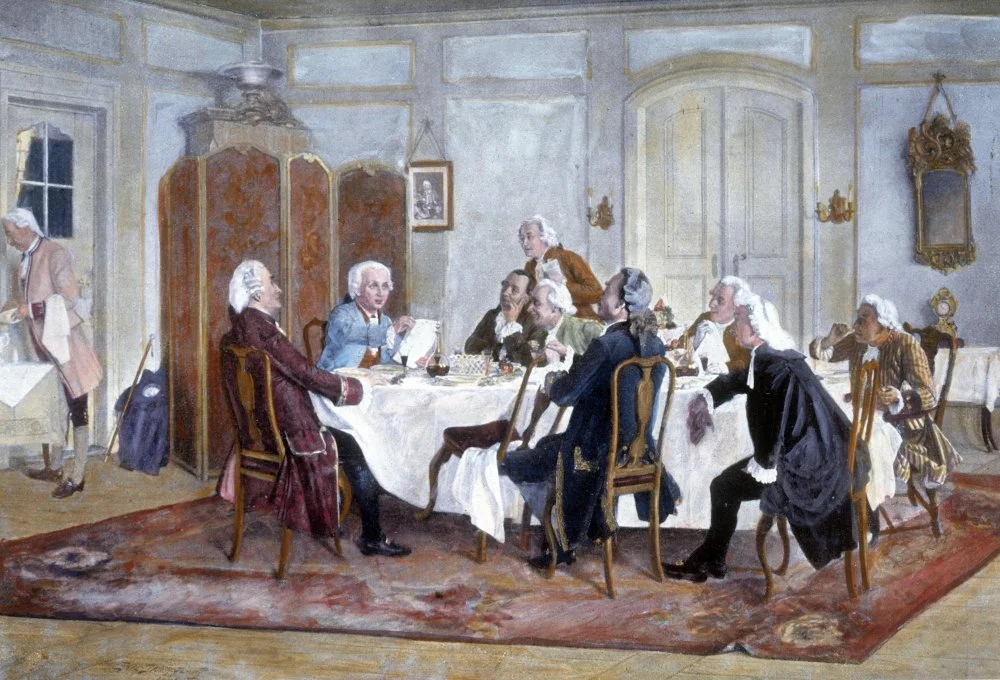
Kant and his comrades at the table by Emil Doerstling, 1900. /Alamy
The opposite of a reckless man is a man of reason; he who is generally alien to all recklessness is wise. Such a wise man can only be found on the moon, whose inhabitants may have no passions and infinitely greater intelligence. A man who is not susceptible to anything is protected from folly by his stupidity, but to the mob he appears to be a wise man. On a ship during a storm, when everyone was terrified and thinking only of themselves, Pyrrho noticed a pig eating quietly from a trough and said: “Such must be the serenity of a wise man.” The unconcerned man is Pyrrho’s wise man.
ON JEWELRY
A sign of coarse taste today is the desire to wear as much jewelry as possible; the finest taste is now characterized by simplicity.

A restorer cleans the shoes of philosopher Immanuel Kant in the armoury of the Dresden Castle in Dresden, Germany/Alamy
ON WOMEN WITH BEARDS
Laborious learning or painful pondering, even if a woman should greatly succeed in it, destroy the merits that are proper to her sex, and because of their rarity they can make of her an object of cold admiration; but at the same time they will weaken the charms with which she exercises her great power over the other sex. A woman who has a head full of Greek, like Mme Dacier, or carries on fundamental controversies about mechanics, like the Marquise du Châtelet, might as well even have a beard; for perhaps that would express more obviously the mien of profundity for which she strives.
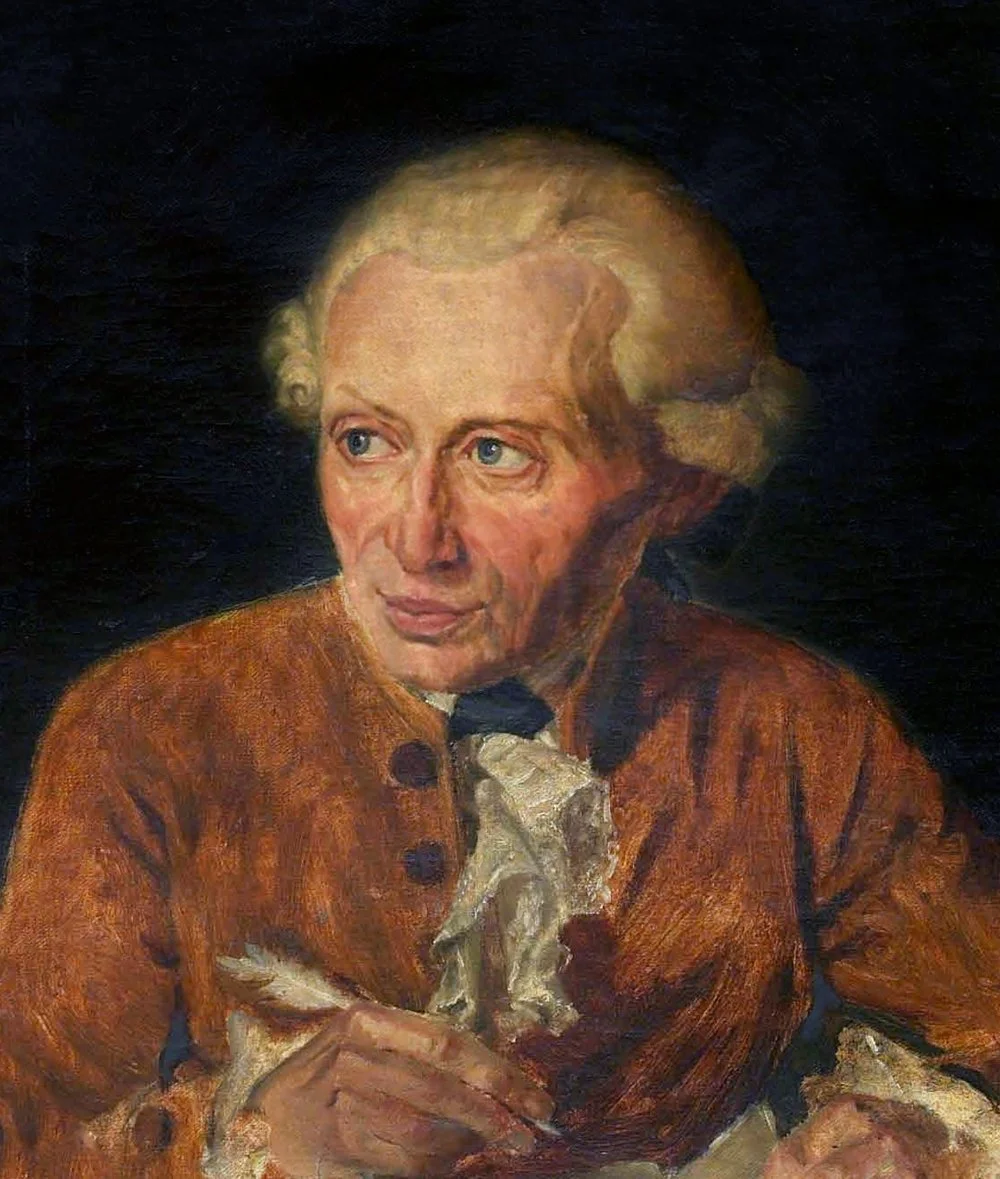
Immanuel Kant (1724-1804)/Alamy
ON INEQUALITY
The first kind of inequality is the inequality between man and child, man and woman. The man, because he is strong and they are weak, considers himself guilty in some way if he does not sacrifice something for them.
ON MEDICINE
With my highly sensitive nervous system, medicine is always poison to me. The only thing I really need sometimes, though seldom, when acidity torments me in the morning, is half a teaspoonful of cinchona bark tincture, which I find much more effective than any kind of absorption.

Immanuel Kant' s House In Königsberg, Now Kaliningrad, Russia Immanuel Kant S House In Königsberg, Now Kaliningrad, Russia/Legion-Media
ON THE IMPORTANCE OF BEING CONTENT
The thinking man feels a sadness that can lead him to a moral degradation of which the foolish man is unaware, namely, dissatisfaction with the Providence that governs the course of world events, when it sums up the disasters that oppress the human race without (it seems) hope for the best. On the other hand, it is of the utmost importance to be satisfied with Providence (even if it has destined us to follow such a difficult path on earth); we can achieve this partly by self-encouragement in difficult moments, and partly by attributing our misfortunes, instead of blaming them on fate, to our own fault, which may be the only cause of them, and by seeking help in self-improvement.
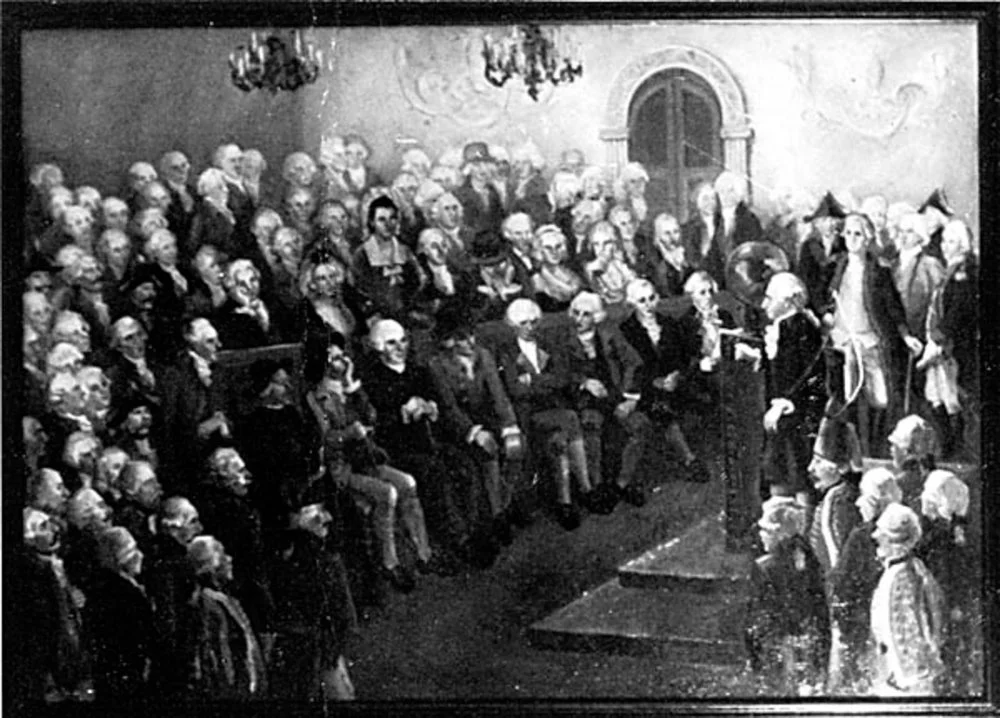
Immanuel Kant, lecturing to Russian officers . Unknown date/Alamy
ON PARENTING
It is unnatural for a man to spend his life teaching a child how to live.
ON SEX IN SENIOR YEARS
An elderly woman who behaves modestly and kindly in society, who engages in cheerful and intelligent conversation, who patronizes the amusements of youth with the necessary tact without taking part in them herself, who shows pleasure and favor in the amusements surrounding her, who shows care for everything - such a woman is still a more delicate being than a man of the same age, and perhaps even more attractive than a young girl, though in a different sense. Admittedly, such platonic love as one ancient philosopher was describing, seems strange to us: "Grace dwells in her wrinkles, and my soul, as if hovering at my lips, when I kiss her withered lips. In such a case, this claim must be abandoned. An old man who plays the role of a lover is a fop, while similar desires of an old woman are disgusting. If we behave unseemly, it is not nature that is to blame, but the desire to pervert it.

Immanuel Kant /Legion-Media
ON ORIENTAL NATIONS
If we now take a quick look through the other parts of the world, we find the Arab to be the noblest human being in the Orient, although with a feeling that very much degenerates into the adventurous. He is hospitable, generous, and truthful; but his tale and history and in general his sentiment always has something marvelous woven into it. His inflamed power of imagination presents things to him in unnatural and distorted images, and even the spread of his religion was a great adventure. If the Arabs are as it were the Spaniards of the Orient, then the Persians are the Frenchmen of Asia. They are good poets, courtly and of rather fine taste. They are not such strict observers of Islam and allow their cast of mind, inclined to gaiety, a rather mild interpretation of the Koran. The Japanese can be regarded as it were as the Englishmen of this part of the world, although hardly in any other attribute than their steadfastness, which degenerates into the most extreme stiff-neckedness, their courage and their contempt of death. Otherwise they demonstrate few marks of a finer feeling. The Indians have a dominant taste for grotesqueries of the land that comes down to the adventurous. Their religion consists of grotesqueries. Images of idols of enormous shape, the priceless tooth of the mighty ape Hanuman, the unnatural atonements of the Fakirs (heathen mendicant monks), etc., are in this taste. The voluntary sacrifice of the wives in the very same pyre that consumes the corpse of her husband is a repulsive adventure. What ridiculous grotesqueries do the verbose and studied compliments of the Chinese not contain: even their paintings are grotesque and represent marvelous and unnatural shapes, the likes of which are nowhere to be found in the world. They also have venerable grotesqueries, for the reason that they are of ancient usage, and no people in the world has more of them than this one.

The cover of the German edition of I. Kant's first work/Wikimedia commons
ON THE FALSE
Decorum is the false noble; splendor is the false imaginary; adorned is the false beautiful.
ON DRINKING
The inclination to drink is not so base as gluttony, for drinking is a means of sociability and talkativeness, and contributes to the excitement of man, and in this respect it can be excused; but when drinking exceeds this degree, it becomes the vice of drunkenness. Drunkenness, therefore, since it is based on convivial drinking, always remains a beastly vice, but it is not as despicable as gluttony, which is much lower, because gluttony does not contribute to conviviality or to the vitalization of the body, but only reveals the animal nature. Drinking and intoxication in solitude are equally reprehensible, for then the reason that slightly elevated it above gluttony is gone.

Bronze relief devoted to the benefits of book printing for Europe on the monument to Johannes Gutenberg (1840) by French sculptor David d'Angers in Strasbourg, France/Alamy
ON WARS OF THE FUTURE
It must be recognized that the greatest misfortunes which befall well-bred nations are the consequences of war, and not so much the consequences of the war which is now going on or which has taken place, but of the incessant and even incessantly increasing preparations for a future war. All the energies of the State, all the fruits of its culture, which could be used to spread it even more widely, are being spent on it; freedom is being severely curtailed in many places, and the maternal care of the State for its individual members is being expressed in inexorably strict demands, which are also justified by the interests of external security. But could this culture, the close connection of public interests for the mutual promotion of well-being, exist, could the population even enjoy that portion of freedom which, though under very restrictive laws, still remains, if this constant threat of war did not compel the supreme rulers of states to this respect for humanity? The example of China is convincing enough, which, after having once really experienced a kind of unforeseen attack, had no powerful enemy and in which every trace of freedom was erased. Thus, in the stage of culture at which mankind is still standing, war is an inevitable means of promoting its development, and only when (God knows when) a complete culture is reached could a permanent peace be beneficial to us, and only on that condition would it be possible.

House In Königsberg, Now Kaliningrad, Russia Immanuel Kant S House In Königsberg, Now Kaliningrad, Russia/Legion-Media
ON THE CLEVERNESS OF WOMEN
A woman does not reveal herself easily; for this reason she doesn’t get drunk. Because she is weak, she is clever.
ON LAUGHTER
In everything that is to excite a lively convulsive laugh there must be something absurd (in which the Understanding, therefore, can find no satisfaction). Laughter is an affection arising from the sudden transformation of a strained expectation into nothing.
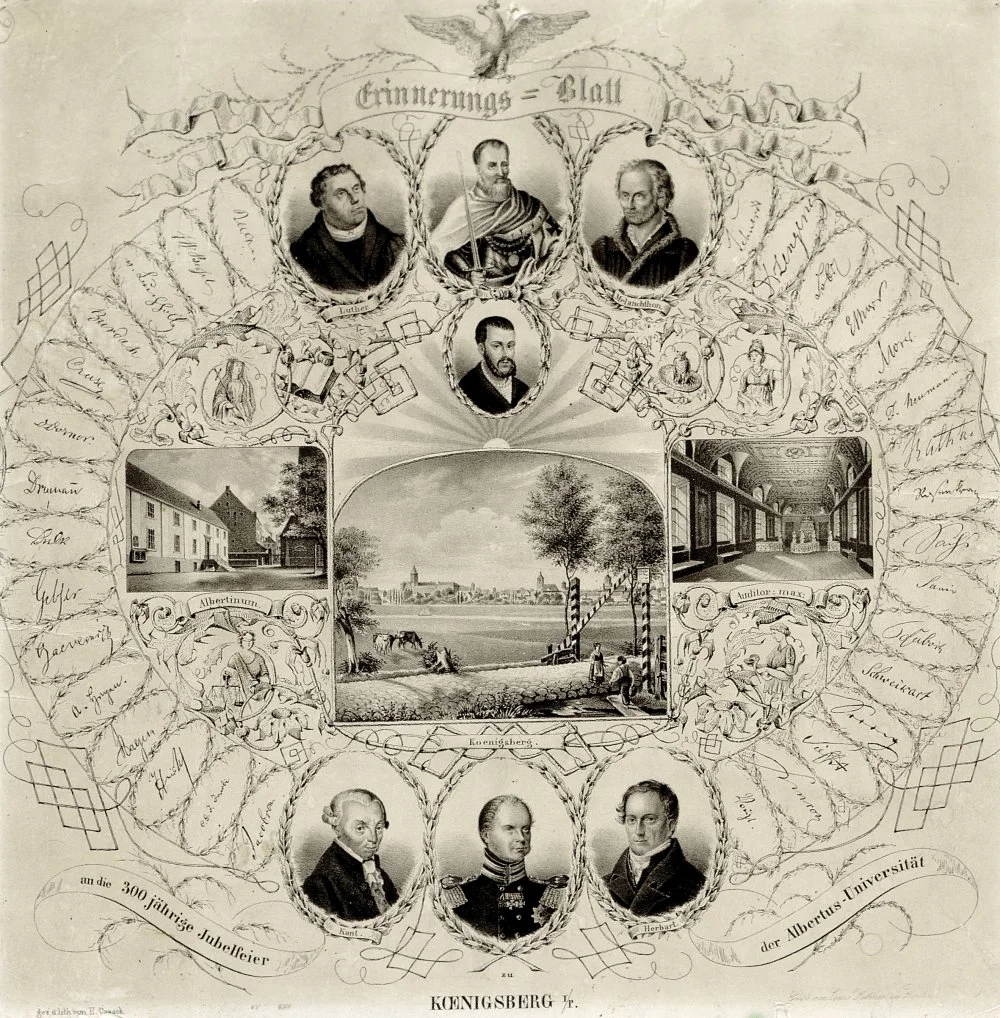
Poster celebrating the 300 years of the University of Königsberg, 1844/Wikimedia commons
ON TENDERNESS AND PASSION
A man can attract the fair sex with strong passion, a woman with quiet tenderness.
ON GENIUS
In this way the product of a genius (as regards what is to be ascribed to genius and not to possible learning or schooling) is an example, not to be imitated (for then that which in it is genius and constitutes the spirit of the work would be lost), but to be followed, by another genius; whom it awakens to a feeling of his own originality and whom it stirs so to exercise his art in freedom from the constraint of rules, that thereby a new rule is gained for art, and thus his talent shows itself to be exemplary.

Famous philosophers commemorated in the John Rylands Library, Manchester, UK/Alamy
ON THE BEAUTIFUL
Beautiful is that which is recognized without concepts to be the object of a necessary pleasure.
